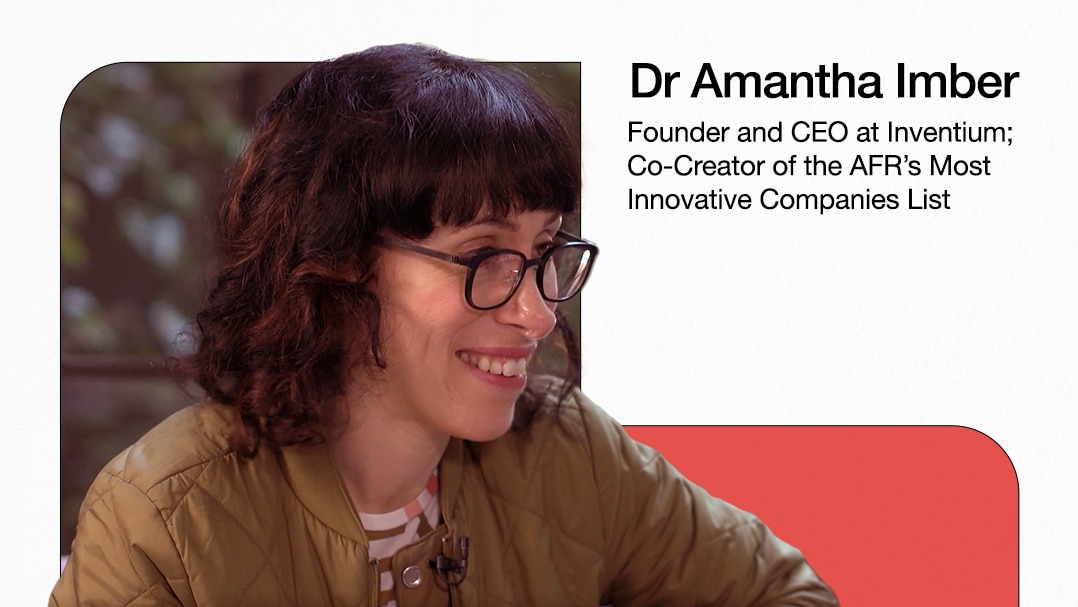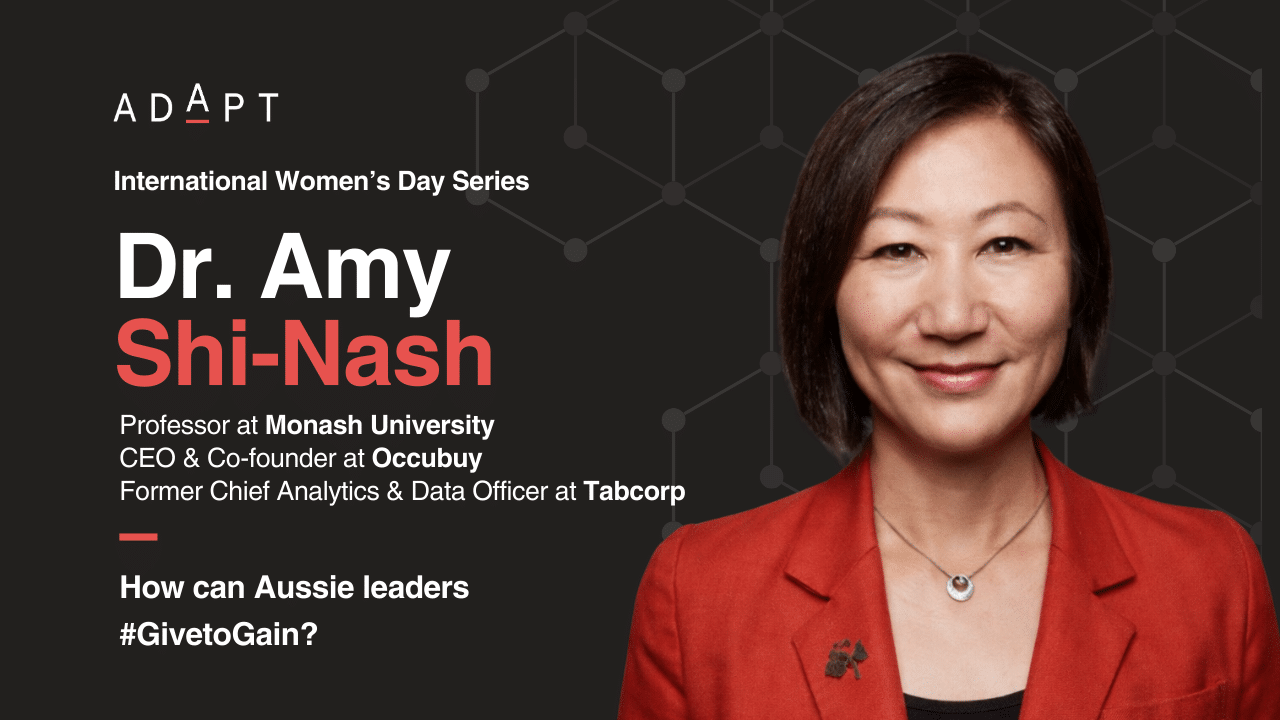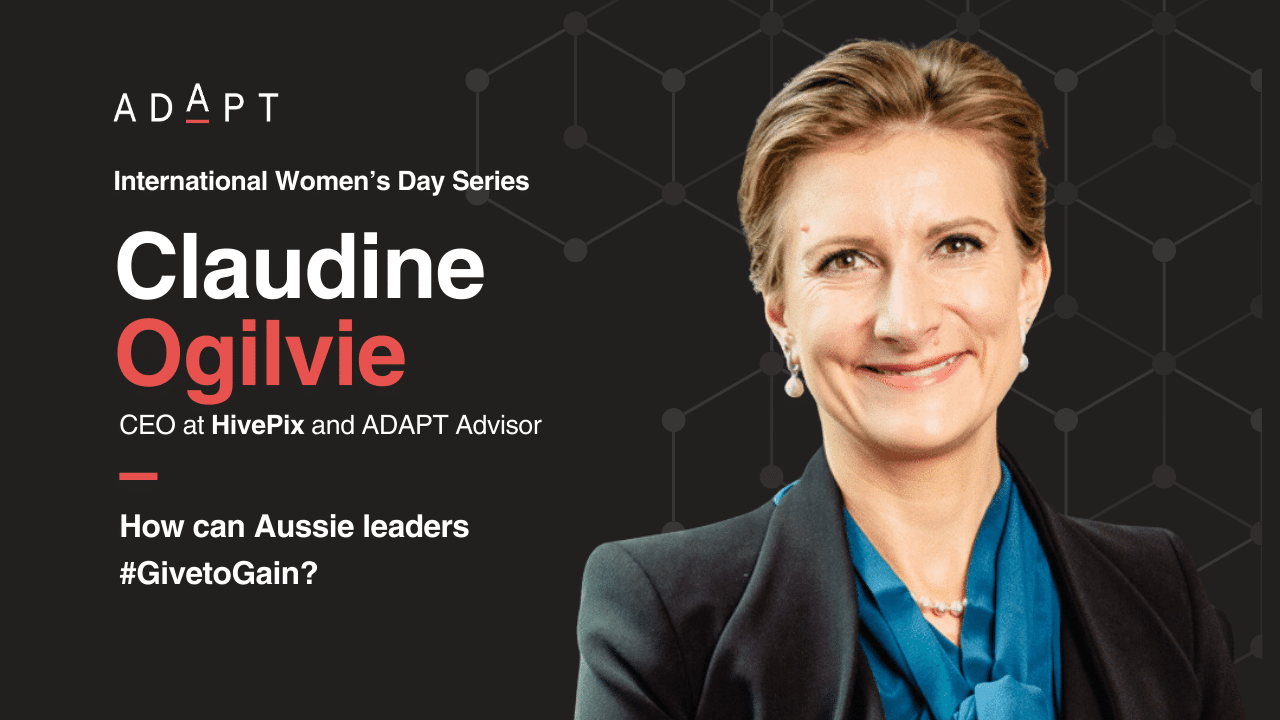Dr Amantha Imber is an innovation psychologist, best-selling author, and founder of Australia’s leading innovation consultancy Inventium. At ADAPT’s CFO Edge event with our Senior Research Strategist Aparna Sundararajan, Imber shares proven ways to improve the productivity of finance teams whilst enabling autonomous ways of working.
Aparna Sundararajan:
Welcome back, Amantha, for our CFO session. I would like to understand what your views are, or what have you seen, within your experience, in terms of the difference in the way CFOs and their teams function, in general, from the rest of the organisation. Is there a difference, or have you not seen any at all?
Amantha Imber:
Look, I don’t think that there’s a huge difference. I think that what most knowledge workers struggle with, is that they’re constantly distracted by digital interruptions. And I think it’s a really hard environment to do deep, focussed work in. So I think that is the case if you’re working within the CFO area, or within technology, or within any other area where you’re paid, essentially, for the quality of your thinking.
Aparna Sundararajan:
When we think about the job they’re doing, more or less, they’re working with numbers and data, and in relevance to that, what would be your advice to the CFOs and their teams in order to have the most productive day for themselves?
Amantha Imber:
So, I think when you are working with numbers and data for your whole day, and that is the value that you bring to the organisation, you really do need to think about what is your approach or your routine to getting that deep, focussed work done?
Because the average office worker can only stay focussed for six minutes before they get distracted by email or instant messenger or something like that.”
So for the CFO and their team, they need to be thinking about, well how do they create a deep work routine? Which is what I spoke about, in terms of thinking about what is the optimal time of day to be doing the heavy lifting work that your brain needs to do, to be great at your job. And then, having in place the right environment, and the right skills to be able to do that and stay off digital distraction.
Aparna Sundararajan:
Then, in that sense, how do organisations bring about a balance in enabling the employees to let their personalities and their personal choices of work remain as they are, while not impacting the productivity, or actually maximising productivity? Have you seen any examples of any organisations that you could speak about?

Amantha Imber:
Absolutely. So, we’ve been doing work with a big top-tier law firm, we’ve worked with about 200 lawyers. And we’ve basically retrained them to have better working habits. I think most people don’t actually think that there is the ability to do things better, because it’s so ingrained in working norms now that we do a bit of work, but then, essentially, we’re running our day on what I talked about in terms of shallow work. Work that is non-cognitively demanding work, i.e; email, or Slack, or instant messenger. And digital communication and distractions. Whereas, for example, with this group of about 200 lawyers, we were actually able to retrain them in how to do deep, focussed work, which obviously, for lawyers, is critical, as it is for CFOs.
Aparna Sundararajan:
Okay. And then, lastly, if there is one thing that everyone needs to change about their habit, to be able to be more productive, of course there is digital platform and getting distracted from that. Apart from that, just in a work environment, what would be it?
Amantha Imber:
People need to mono-task.”
So, multi-tasking, or task switching, is rife, most people would go through their entire day constantly task switching every few minutes, because that is the easy thing to do. Because every time we check email, there’s a bit of good news, or our social media feed, we get that dopamine hit, which is highly addictive, it makes us feel good, so people need to stop doing that. Because when we constantly task switch, things take about 40% longer to do. So if people can mono-task, focus on one thing at one time, for decent lengths of time, we’re going to get more done in less time.
 watch
04:15
watch
04:15






























